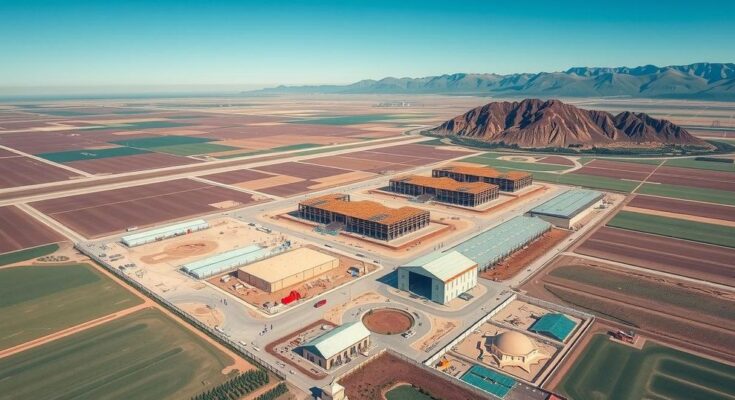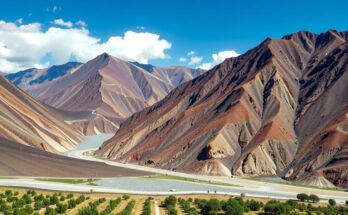Mongolia plans to develop megaprojects focused on mining and processing to enhance its economy and reduce raw material exports to China. These initiatives aim to increase GDP and involve substantial foreign investment. However, there are notable challenges including public skepticism, environmental concerns, and political dynamics that the government must address to succeed in its goals.
Mongolia is advancing plans to expand its industrial capacity, particularly in its mining sector, which has significantly contributed to the economy over the past two decades. Officials advocate for keeping raw materials within Mongolia for processing rather than exporting them unrefined, responding to public demand for improved livelihoods. “People are much more keen to see results. They also want to see their livelihoods being uplifted significantly,” stated Bulgantuya Khurelbaatar, deputy speaker of the Ikh Khural and member of the ruling Mongolian People’s Party (MPP).
Prime Minister Oyun-Erdene Luvsannamsrai aims to construct factories that would transform Mongolia’s mineral wealth into processed goods, positioning the nation as a crucial player in global supply chains. However, these megaprojects face challenges including the requirement for substantial foreign investment and sustainability concerns. Officials assert that advancing these projects is essential to meet economic targets, including raising per capita GDP to $10,000 from $7,580.
The Prime Minister has identified 14 potential megaprojects, among which are mineral processing centers, power plants, and water diversion initiatives. Noteworthy progress has been made, including agreements with France to develop a uranium mine and with China for a cross-border rail line. Although these projects will take years to realize, their progression helps build momentum for future developments, with plans for a 450-megawatt power station in the coal-rich Tavan Tolgoi area emphasized.
Politics play a significant role in expediting these initiatives, as the MPP formed a coalition government with the Democratic Party to facilitate development. This coalition aims to alleviate resistance in Parliament and secure necessary partnerships for projects involving community implications, like hydropower dams. “When almost half the Parliament becomes an opposition, it’s quite difficult to push forward for some of these big, megaprojects,” remarked Bulgantuya.
Furthermore, the government prioritizes sustainable practices while pursuing development, promising consultations with neighboring countries concerning water diversions and pledging to protect nomadic culture. Despite the high costs of these ventures, which are expected to exceed billions, officials have assured that taxpayer money will not be risked, instead relying on private and foreign investments. Previous experiences highlight the challenge of securing foreign partnerships, as exemplified by the complex relationships with companies like Rio Tinto.
Public sentiment toward the megaprojects remains ambivalent. Many citizens are vigilant about foreign exploitation of resources, as reflected in past experiences with the Oyu Tolgoi project. Some lawmakers advocate for a more diversified economy that does not overly rely on mining. Jargalan Batbayar from the Democratic Party has expressed skepticism regarding foreign investments and potential impacts on national debt, warning that some projects may not yield sufficient returns and could inflate economic liabilities.
While acknowledging diverse perspectives, government officials remain committed to comprehensive projects, believing they will draw both foreign and domestic investment. “We understand that there are varying voices,” noted Bulgantuya. “But at the same time, these big projects support foreign and even domestic investment and still need to go ahead.”
In summary, Mongolia is embarking on a series of ambitious megaprojects aimed at expanding its industrial capabilities and reducing reliance on raw material exports. While there are significant economic aspirations, hurdles including investment challenges and public skepticism about foreign engagement must be navigated. The coalition government is determined to pursue these large-scale initiatives despite mixed public opinions, underscoring a commitment to advancing Mongolia’s economic future while addressing sustainability concerns.
Original Source: www.bne.eu




